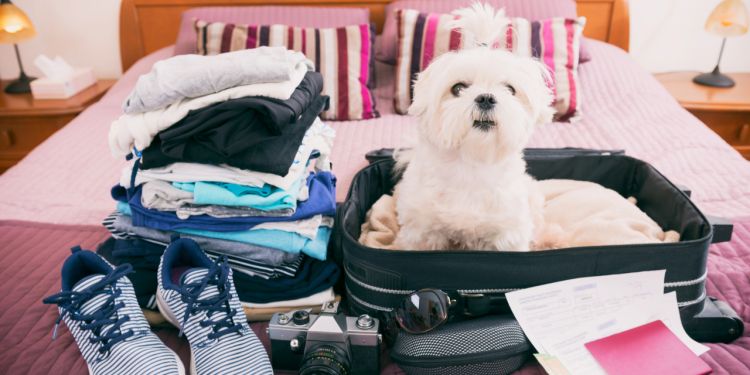

You should note, by the way, that dogs and cats are subject to a quarantine period ranging from one to 14 days upon arrival in Jakarta. If, in any case, you still wish to bring your pet with you, contact a pet relocation specialist. They will provide you with relevant advice on the administrative requirements as it is important to comply with all the required conditions and to provide all the necessary documents for your pet to undergo the minimum quarantine period.
As mentioned already, a pet relocation specialist is the best person to assist you in all aspects of the process. As some formalities are time-consuming, it is advisable to make preparations several months before your expatriation to Indonesia.
Upon arrival, you will need to declare your pet to a quarantine officer at the nearest quarantine center. Check out the list of quarantine centers available in Indonesia before your departure. If you have a pet other than a dog or cat, make sure to check if it is protected by the Convention on International Trade in Endangered Species of Wild Fauna and Flora (CITES). There may be restrictions, or the authorities may require additional permits.
You should also be aware that all dogs and cats coming from the United States and Canada will automatically be subject to a maximum 14-day quarantine due to the H3N2 canine virus present in these countries.
Vaccines and tests required for pets in Indonesia
If your part is part of your move to Indonesia, you will need a health certificate issued by a veterinarian in your country of departure. Microchipping is not mandatory for pets in Indonesia, but it is strongly recommended. Currently, the microchip must comply with ISO 11784 or Annex A of ISO 11785.
Furthermore, your pet must be up to date on rabies vaccinations, requiring a visit to the veterinarian within a specified time frame. You must be able to provide the original certificate for rabies protection, which must indicate the microchip number, the date of inoculation and the validity of the vaccination (some are valid for one year while others last two years). This rabies vaccine must be an inactivated strain.
A rabies titration test and a fluorescent antibody virus neutralization (FAVN) blood test are also required to ensure that rabies vaccines have provided adequate antibody levels. The sample will need to be approved by an official authority before your pet leaves its country of origin to travel to Indonesia.
Your veterinarian will need to send a sample of the administered serum along with a completed FAVN report form to an approved laboratory, which will perform the FAVN test. In order for your pet to be allowed to enter Indonesia, the results of this blood test must be 0.5 IU/ml or higher.
Your pet must also be up to date with all other vaccinations, which must be administered at least 30 days before departure. For dogs, the main vaccinations required are distemper, leptospirosis, hepatitis and parvovirus (DHLP), while cats must be vaccinated against feline viral rhinotracheitis, calicivirus and panleukopenia (FVRCP).
Pet import permits in Indonesia
Any pet entering Indonesia requires an import permit issued by the Ministry of Agriculture. This document is valid for 30 days. To qualify, you will need to present a copy of your passport, a valid copy of your veterinarian's health certificate, and a copy of your pet's vaccination records.
It takes approximately 14 days to receive the permit, provided you submit the application and all required documents in a timely manner.
Health certificate and endorsements required in Indonesia
The health certificate must be issued by an accredited veterinarian four to five days prior to your pet's departure to Indonesia. This certificate must clearly state that the animal has no clinical signs of rabies, distemper, leptospirosis, Aujeszky's disease, leishmaniasis or tuberculosis. If you are coming from the USA, you will need to send these forms to your local USDA office to get their seal of approval.
Important:
Certain regions in Indonesia are off-limits to pets due to rabies. The prohibited areas are as follows: Madura and its surroundings, Bali, Kupang, Sumba, Nusa Tenggara Barat, Nusa Tenggara Timur, Maluku, Irian Jaya, Kalimantan Barat, all islands near Sumatra (Batam, Bintan, Bangka Belitung), West Kalimantan, West Papua, East and West Nusa Tenggars, Ballio Island, Central and East Jakarta, and finally Yogyakarta.
Useful links:
We do our best to provide accurate and up to date information. However, if you have noticed any inaccuracies in this article, please let us know in the comments section below.








